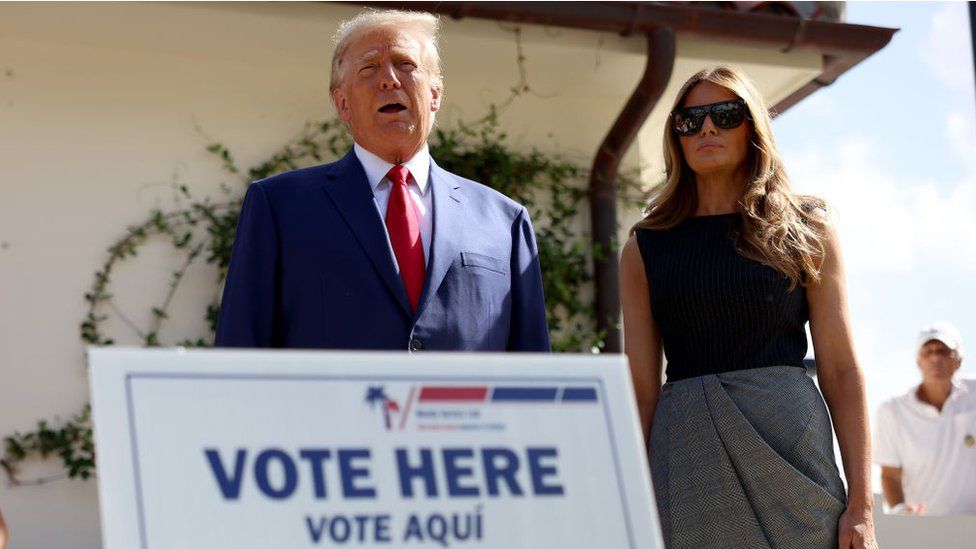-

-
-
Loading

Loading

A new legal effort to disqualify Donald Trump from the 2024 US presidential ballot is gaining traction. Previously supported by liberal activists, the theory has now gained support from prominent conservatives. However, critics argue that moving forward with this effort would deny voters the right to decide whether Trump should return to the White House. This untested legal strategy would ultimately be decided by the conservative Supreme Court that Trump helped shape. Recently, a watchdog group filed a lawsuit in Washington to block Trump from the Republican primary in Colorado, potentially the first of many similar lawsuits. The Trump campaign responded by stating that the challenge stretches the law and lacks any factual basis. Despite facing legal troubles, Trump remains the leading candidate for the Republican nomination and is polling equally with President Joe Biden in their expected rematch. The strategy to remove Trump from the primary ballot is based on Section Three of the 14th Amendment of the US Constitution, which prevents individuals who have engaged in rebellion or insurrection against the country from holding federal office. This provision was used after the Civil War to prohibit secessionists from returning to government positions. In recent times, this provision has become a political point of contention following Trump's attempt to overturn the 2020 election and the Capitol riot in January 2021. The organization Free Speech For People is leading the effort to disqualify Trump in multiple states, citing his role as the chief insurrectionist. They are also petitioning election officials in nine states to remove Trump from the primary ballot. If successful, Trump's fate would ultimately be decided by the US Supreme Court. This legal strategy has gained momentum since August when Trump faced accusations of election subversion in two criminal cases. Conservative legal scholars argue that Section Three of the 14th Amendment automatically disqualifies individuals from holding office, without the need for further action by Congress. Their perspective has been supported by other legal experts with conservative credentials. Even with the conservative majority in the Supreme Court, some believe they may be open to this argument. However, there are detractors who question the viability of this legal theory and its implementation in a highly partisan America. Critics argue that voters should have the final say in blocking Trump from the presidency, rather than relying on legal technicalities. Some Republican officials, including Brad Raffensperger of Georgia, reject this effort, seeing it as an attempt to bypass the democratic process. However, officials in other states, such as Michigan and New Hampshire, are actively considering the matter. The New Hampshire challenge is supported by Bryant "Corky" Messner, a Republican attorney who ran for the US Senate in 2020 with Trump's endorsement. Messner wants the courts to decide on Trump's eligibility before deciding whether to support him. He emphasizes the importance of upholding the US Constitution over any individual, including Trump. In conclusion, the legal effort to disqualify Trump from the 2024 presidential ballot is gaining momentum but faces criticism from those who believe voters should have the final say. The application of Section Three of the 14th Amendment to this scenario is a relatively untested strategy that could ultimately be decided by the Supreme Court.